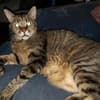Podcast
Questions and Answers
Which of the following traits is NOT used by animals to detect, capture, and eat other organisms?
Which of the following traits is NOT used by animals to detect, capture, and eat other organisms?
- Photosynthesis (correct)
- Toxins
- Speed
- Strength
What is a defining characteristic of animals' cell structure?
What is a defining characteristic of animals' cell structure?
- Lack of nervous tissue
- absence of cell walls (correct)
- Multicellularity and eukaryotic cells
- Absence of structural proteins
How do animals obtain their food?
How do animals obtain their food?
- Through photosynthesis
- By ingesting it (correct)
- By secreting enzymes externally
- By absorbing it through their skin
What is the main function of nervous tissue in animals?
What is the main function of nervous tissue in animals?
What characteristic defines animals as heterotrophs?
What characteristic defines animals as heterotrophs?
What is the main function of muscle tissue in animals?
What is the main function of muscle tissue in animals?
What is the name given to the rapid cell division that occurs after a sperm fertilizes an egg?
What is the name given to the rapid cell division that occurs after a sperm fertilizes an egg?
Which stage is sexually immature and morphologically distinct from the adult in most animals?
Which stage is sexually immature and morphologically distinct from the adult in most animals?
What do most animals have that regulates the development of body form?
What do most animals have that regulates the development of body form?
What group of protists is considered to be the closest living relatives to animals?
What group of protists is considered to be the closest living relatives to animals?
What is the name given to the process that requires the evolution of new ways for cells to adhere and signal to each other?
What is the name given to the process that requires the evolution of new ways for cells to adhere and signal to each other?
Which era dates back to about 1 billion to 542 million years ago?
Which era dates back to about 1 billion to 542 million years ago?
What is the name given to the hollow multicellular structure formed during cleavage?
What is the name given to the hollow multicellular structure formed during cleavage?
Which gene family regulates the development of body form in most animals?
Which gene family regulates the development of body form in most animals?
What process eventually leads a larva to become a juvenile?
What process eventually leads a larva to become a juvenile?
What is the name given to the group of protists that resemble modern choanoflagellates?
What is the name given to the group of protists that resemble modern choanoflagellates?
Flashcards
Photosynthesis
Photosynthesis
The process by which plants convert sunlight into energy. It's not how animals get food.
Absence of cell walls
Absence of cell walls
The absence of a rigid cell wall surrounding animal cells, allowing for flexibility and movement.
Ingestion
Ingestion
The process of taking in food from the environment.
Nervous tissue
Nervous tissue
Signup and view all the flashcards
Heterotroph
Heterotroph
Signup and view all the flashcards
Muscle tissue
Muscle tissue
Signup and view all the flashcards
Cleavage
Cleavage
Signup and view all the flashcards
Larva
Larva
Signup and view all the flashcards
Hox Genes
Hox Genes
Signup and view all the flashcards
Choanoflagellates
Choanoflagellates
Signup and view all the flashcards
Multicellularity evolution
Multicellularity evolution
Signup and view all the flashcards
Neoproterozoic Era
Neoproterozoic Era
Signup and view all the flashcards
Blastula
Blastula
Signup and view all the flashcards
Hox Genes
Hox Genes
Signup and view all the flashcards
Metamorphosis
Metamorphosis
Signup and view all the flashcards
Modern choanoflagellates
Modern choanoflagellates
Signup and view all the flashcards
Study Notes
Animal Characteristics
- Animals use various traits to detect, capture, and eat other organisms, but do not use photosynthesis.
- A defining characteristic of animals' cell structure is the absence of cell walls.
Nutrition
- Animals obtain their food by consuming other organisms or organic matter.
Heterotrophy
- Animals are heterotrophs, characterized by their inability to produce their own food.
Tissue Functions
- The main function of nervous tissue is to transmit and process information.
- The main function of muscle tissue is to contract and move the body.
Development
- The rapid cell division that occurs after a sperm fertilizes an egg is called embryogenesis.
- In most animals, the larval stage is sexually immature and morphologically distinct from the adult.
- Most animals have a gene regulatory network that regulates the development of body form.
- The process of metamorphosis eventually leads a larva to become a juvenile.
Evolutionary Relationships
- Choanoflagellates are a group of protists that are considered to be the closest living relatives to animals.
- The process of animal evolution required the development of new ways for cells to adhere and signal to each other, called gastrulation.
Protist Groups
- The group of protists that resemble modern choanoflagellates is called animal-like protists.
Geological Time Scale
- The Neoproterozoic era dates back to about 1 billion to 542 million years ago.
Embryonic Development
- The hollow multicellular structure formed during cleavage is called a blastula.
- The Hox gene family regulates the development of body form in most animals.
Studying That Suits You
Use AI to generate personalized quizzes and flashcards to suit your learning preferences.





